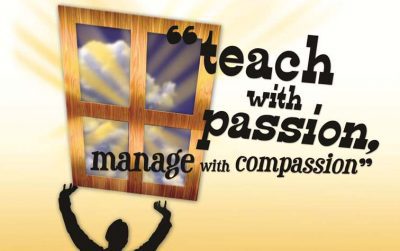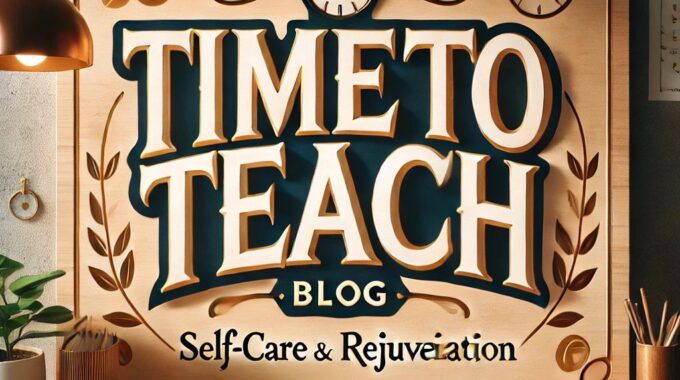As we turn the corner into spring, it’s the perfect time to refresh our teaching…
On Teachers And Teaching And The Essential Criticism Of It All
We believe in thanking our sources! This post was sourced from the following blog/website: https://www.teachthought.com/education/on-teachers-and-teaching-and-the-essential-criticism-of-it-all/
The following is a new blog post related to education and teaching and relevant to our website visitors. The blog post is not based on the opinions or values of our company but is related to education and teaching, so we wanted to share it with YOU! If you ever have any questions please let us know. Now… on to the post!
In 2015 (and updated most recently in 2018), I wrote a post about helping students learn more from ‘others’ than they do from you (the teacher).
The general premise is that modern learning is, in large part, about access, networks, spaces, and personalization–and there’s simply no way for a single teacher to ‘do’ this. In fact, it’s important to note that teaching, as it is, has never been sustainable. Public education promises too much and places far too large of a burden on classroom teachers who do their best to fulfill those ‘promises’ while protecting and nurturing children and it simply doesn’t really work well for anyone.
I suppose it could be argued that it does, in fact, work well but we’d have to simply agree to disagree at that point–which is okay. It takes a mosaic of perspectives to make the world go.
Recently, I updated that post and shared it on social media and was surprised to immediately get urgent, stinging pushback.
Carl Marks (alias? He is a history teacher, after all if his username can be decoded) used emojis to convey his disagreement.
Liane got straight to the point with a full-on dismissal of both the idea and of TeachThought as an organization–and ended with drip of sarcasm on the way out.
This one from Anthony Jones wasn’t mean-spirited but concisely refutes the post.
This response from Sunne of York was less even-handed:
Below, Brendan asked for research and evidence to support the ideas in the post:
Fair enough. I can’t support each item with recent, peer-reviewed and credible research. That’s true. But the general premise that teachers are over-worked and that children (generally) have incredible access to more information than ever and that somehow the latter could help improve the former hopefully doesn’t need supported with research.
The whole idea here is to connect students with an ecosystem of information, inspiration, people, and ideas. And that these ideas and opportunities and places and people and ideas should be more ‘impactful’ and ‘compelling’ than a single teacher.
That can’t possibly be controversial, can it?
Are Teachers ‘Bottlenecks’ Or Are They ‘Overworked’ And What’s The Difference?
In the introduction, I set the context:
“Who or what is the most persistent catalyst in the process of learning? Frequently, it’s probably you (the teacher). You’re the expert on both content and pedagogy. You know what’s being learned, and how it might be best learned. Giving students full autonomy in their own learning might be fine for motivation, but that can be a problem for a variety of reasons. The teacher is finite. The teacher is limited. The teacher has ‘self-bias’–sees things from their point-of-view no matter how hard they try to show empathy. In a teacher-centered classroom, the teacher is the bottleneck.”
But here is where I get closer to my ‘point’: “The big idea here is sustainability by creating an ecosystem of learning that is based on creativity, interest, and possibility as brought to bear by students on topics, problems, and opportunities they care about.”
Are Teachers Important?
Of course they are.
My guess is that either some didn’t actually read the post or they focused on the implication that teachers shouldn’t be the center of the learning universe and that it’s it may not be ideal if, day in and day out, the most compelling and forceful and dynamic ’cause’ of learning for 35 children is one adult (often for five or more classes a day).
I’m assuming it’s tempting to twist that statement around a little and believe that I’m saying that teachers aren’t as effective as other sources of learning, maybe? Or that they’re not absolutely crucial to the learning process? Or that textbooks and apps are more effective than teachers?
Regardless of the source of the misunderstanding (that I’ll accept responsibility for), I would think a teacher would be glad for children to have the very best: the very best learning environments with the very best opportunities to become their very best.
Why be upset about who helps facilitate that or who assigns what percentage across all of the bits and pieces of it all?
And even if the idea was criticism of teachers, as professionals are we not due for and deserving of criticism–ideally self-criticism?
The Education We Have And The Education They Need
While emotionally I’m more interested in the nature of digital interactions–how effortlessly people become awful to one another when the agreement is on social media of some kind–I’ll respond more broadly instead to clarify my position.
I am more than prepared to have large segments of any audience disagree with things I say. I fundamentally believe that the way we (myself included) do things isn’t our best thinking, which implies that what we’re doing and who is responsible for those actions, and how we might improve them are all inherently flawed.
This means each of us is, to some degree, accountable and because I am interested in doing whatever I can to improve these systems, sometimes I am going to criticize organizational systems and principles and policies that are actuated by people and some of those people might take it personally. And become upset. I get it.
I also get that as if teaching wasn’t difficult enough, the last 12 months have elevated the challenge ten-fold. The job of ‘teaching’ is academic and psychological and scientific all at once and each of those domains has been laid bare by global events (i.e., COVID and its countless sociocultural ripples). Teachers are stressed, pushed to their limits in many cases, and lacking support, respect, gratitude, funding, and countless other areas.
But this only reinforces a key point: teaching, as it is, is neither sustainable nor in the best interest of the majority of children. No matter how hard we work, what we have and do isn’t the education they deserve and need.
How teachers think about themselves and their role in the classroom matters (see here, for example). As a teacher, I’d want help. I’d want automations and human networks and live streaming and adaptive learning algorithms. To facilitate learning in whatever form.
While I hope I personally have an impact on the lives of students, I hope it happens by proxy.
After helping my students discover syntax and Faulkner and tone and Toni Morrison and Emily Dickinson and thematic development and Shakespeare, I’d be more than a little disappointed if the most enduring impression of their time in my classroom–among all of the authors and concepts and projects and words and questions and conversations–was me.
The post On Teachers And Teaching And The Essential Criticism Of It All appeared first on TeachThought.
Time To Teach reviews each blog post by our contributors but if you feel this is a blog post better suited for another page please let us know.
Teachers and Educators are our heroes. We want to thank you for the work you do!
Yours In Education!
Time To Teach

